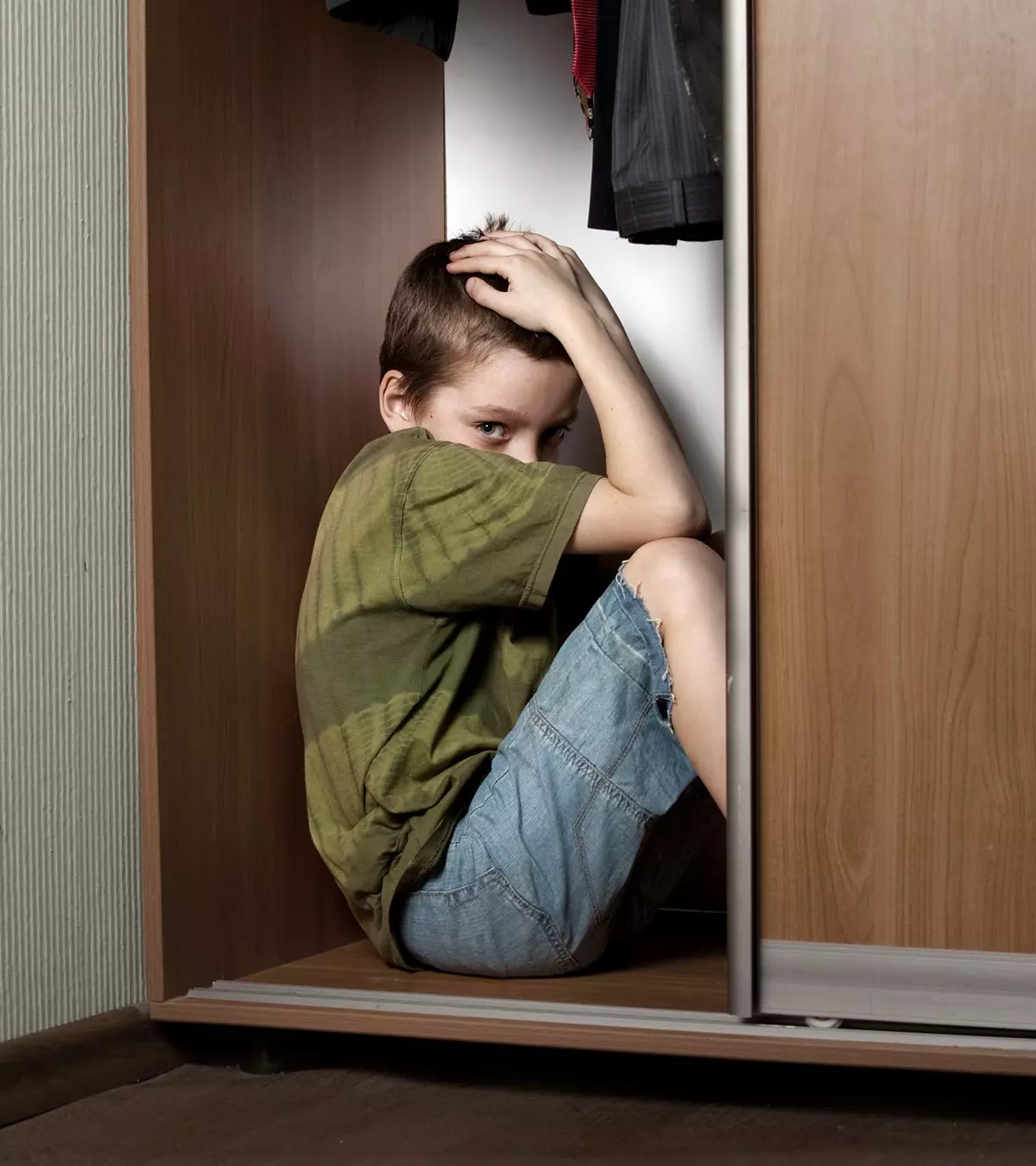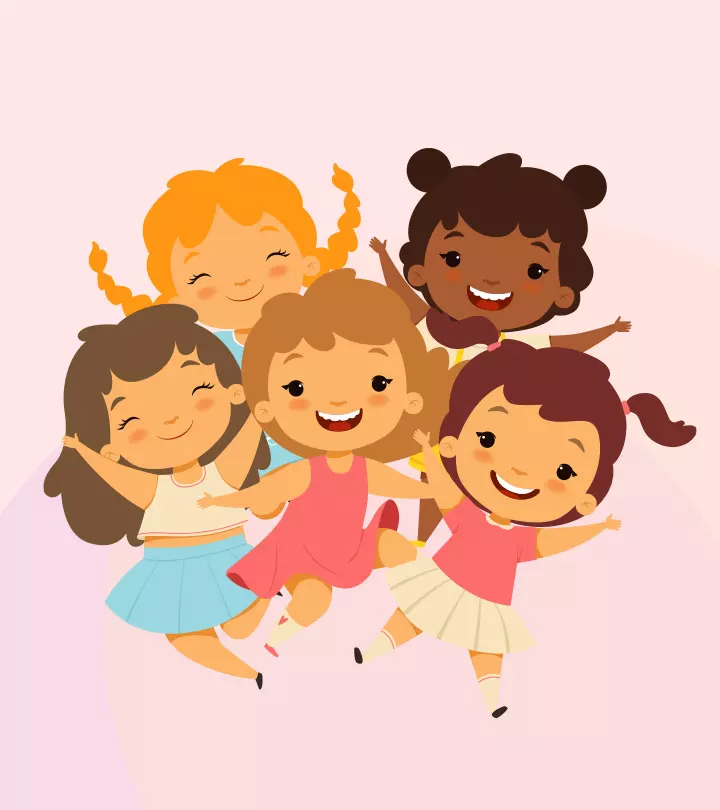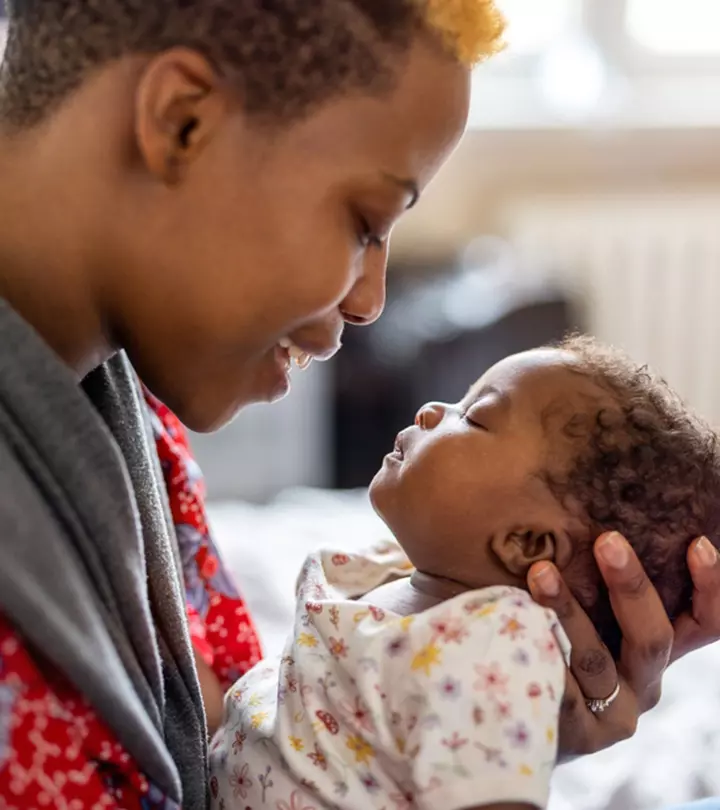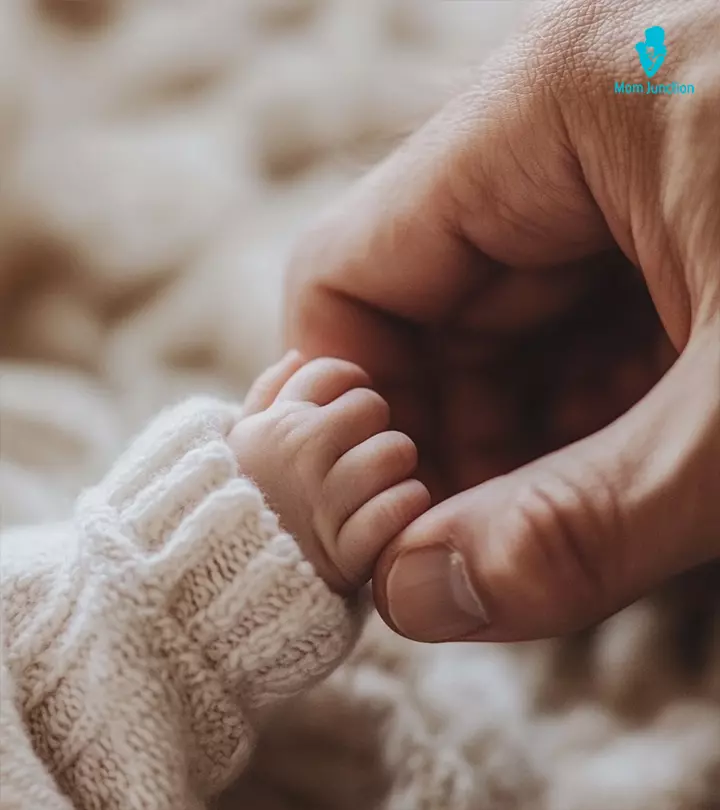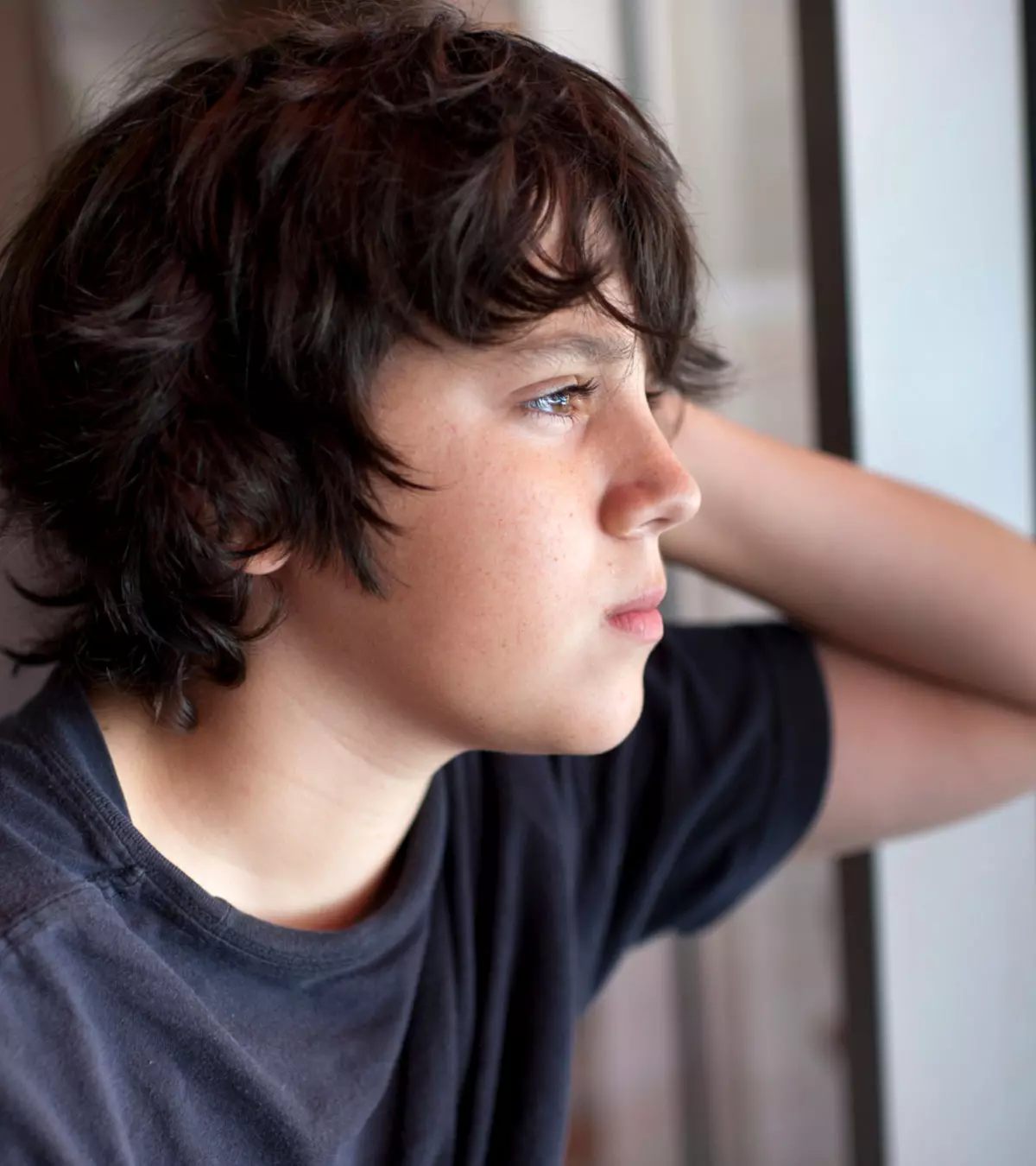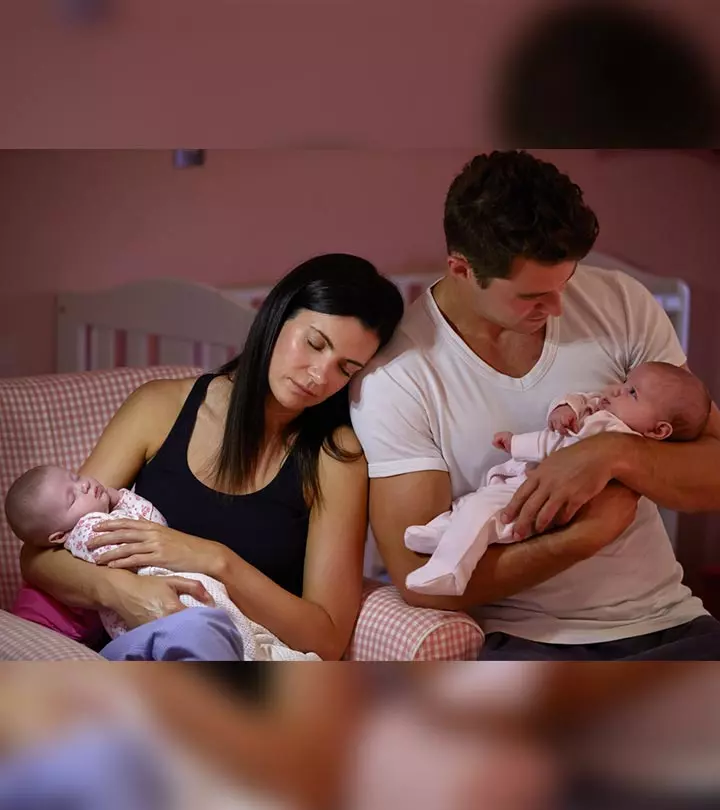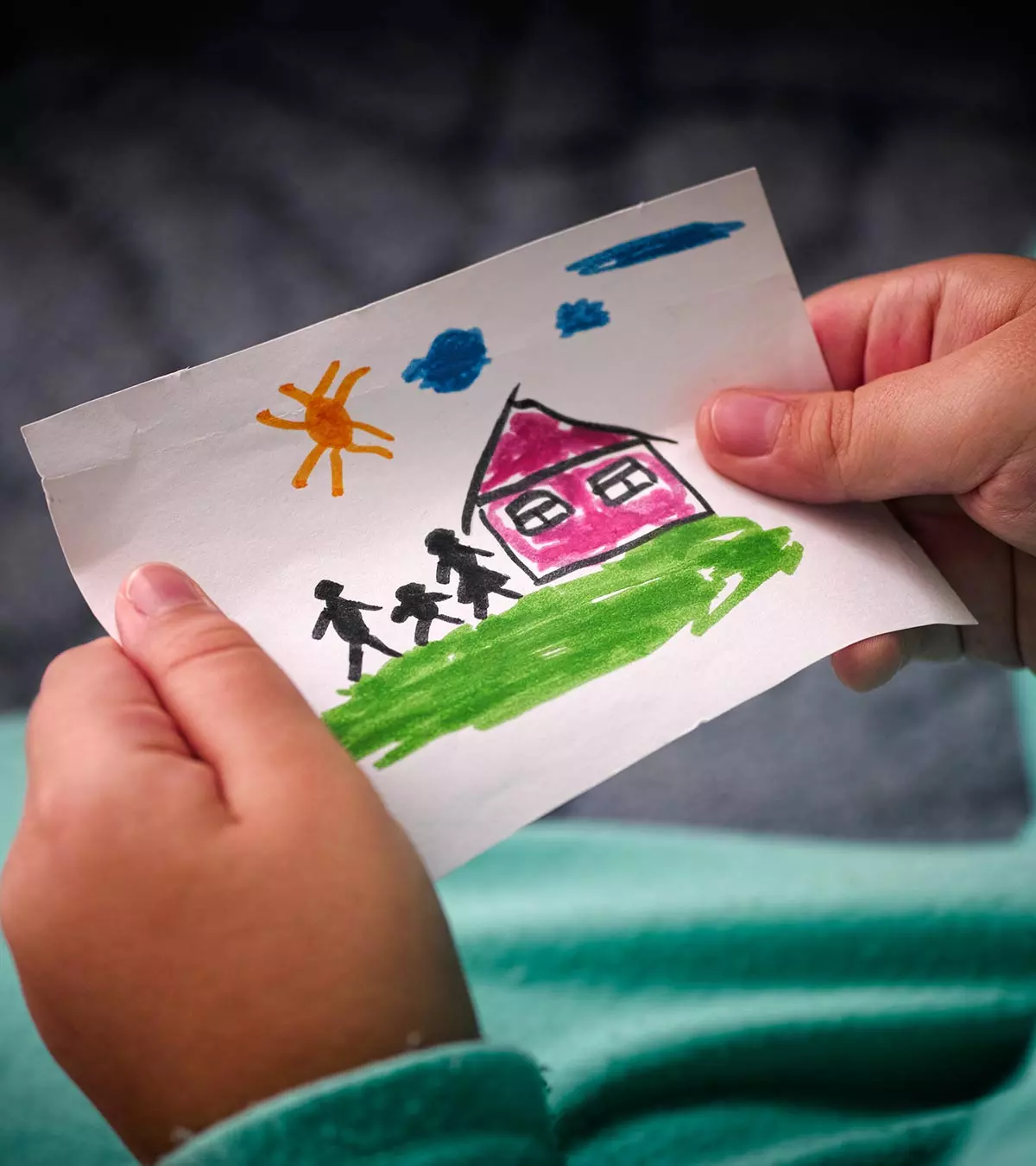
Adoption is a legal process that helps establish familial relationships between the adoptee (child) and the adopter (parents). While adopting a child is a noble gesture, ambivalence, hesitations, and specific adoption problems can make the process difficult. However, you can easily overcome these challenges or issues if you properly understand the adoption process specific to your country’s adoption laws.
Generally, adoption can be open or closed. In an open adoption, the adoptive parents stay in contact with the birth parents or family. On the other hand, there’s no contact between the birth parents and adoptive parents in a closed adoption. Since both the adoption methods are quite different, understanding each technique and the problems they may cause is necessary to make an informed decision.
Read on to know as we take you through the different problems and challenges you may face during the adoption process.
Key Pointers
- Adoption costs and fees differ by agency and location, with international adoptions being pricier.
- Comprehending adoption laws and securing birth-parent agreements is vital, and closed adoptions can raise legal issues.
- Adoptees could have medical issues, and incomplete medical histories can be problematic.
- Older or special needs adoptees may face challenges adjusting to new families.
- Closed adoptions can cause emotional and psychological distress, leading to identity struggles for adoptees.
Challenges And Problems Of Adoption
1. Financial challenges
- The financial aspects of adoption will depend on the agency you choose for the process. If you choose a private adoption agency, you may have to pay more in terms of adoption fees and other expenses compared with any public agencies in your state/country. Prepare to pay more if you are adopting a child who is a foreign national.
- Your financial expenses can increase if you are paying for the expenses of the birth mother’s hospital/medical bills. Your actual expenses will depend on your specific situation. You will also have to pay attorney fees and any other miscellaneous expenses you might incur during the adoption process.
2. Legal challenges

- It is extremely important that you know and understand all the legalities pertaining to child adoption in your country.
- Make sure both birth parents know about the adoption, either open or closed. If the birth mother has agreed to give her child up for adoption without consulting with the birth father who hasn’t yet relinquished his rights to the child, you may experience a lot of legal objections.
 Point to consider
Point to consider3. Intercountry adoption
- With intercountry adoption, you may face different problems as such types of adoptions come under the legal preview of the child’s home country as well as the country of the adoptive parents (1).
- You may need to know about the special visa requirements. You may also need to know the laws about international adoptions (2). For instance, citizens of the US, at present, are not permitted to adopt from certain countries like Fiji, Senegal, Rwanda and a few others.
4. Health challenges

Health challenges of adoption can be any medical problems with the adopted child.
- In closed adoptions, it may not be possible to get all the information on the child’s health history. Even if it is an open adoption, the birth father may be absent and access to the child’s complete medical history may become difficult (3). This may later cause problems in the proper care of the child. As an adoptive parent, you may not able to assess the financial aspects of the child’s healthcare. This may also be true for international adoptions where you might not get the complete picture of the child’s health. This issue can bring many challenges. You may not be financially or emotionally ready to take care of an ill child or a child with a serious medical condition. Or you may not have access to funds needed for the child’s medical care. Some health problems with adoption may not be covered by your insurance. Perhaps due to your job or working situation you may not have the time to care for a child who requires constant medical attention or even money to hire a nurse for the child’s home care.
- Adoptive parents also have a right to know if the child had any developmental delays due to the birth mother’s alcohol/drug abuse during her pregnancy (4). Other concerns can be about any neglect the child may have suffered during his early years or about his inherited illnesses. Not being able to get such information can become problematic for adoptive parents.
5. Emotional challenges
Adoption presents many emotional dilemmas for the child, the adoptive parents and family and the birth parents as well.
- The adopted child may not be able to adjust to your family and vice versa. This can often happen when you adopt an older child.
- You may realize that you are not able to handle the unique parenting challenges of an adopted child.
- It is common for an adopted child to face abandonment issues, especially from a past rejection, that might take a toll on their emotional wellbeing.
- In case of closed adoptions, the birth mother or birth parents have no contact with their child or the adopted family. This may be emotionally testing for them.
- The same can present challenges for the child as he grows older and becomes curious about his birth parents and his sense of identity. It can be very challenging for adopted children to have no access or idea about such a big part of their lives. These problems can affect the whole family leading to conflicts or disputes. First, the child may be in distress and it may sadden the whole family. Depression, eating disorders, low self-esteem, fears, doubts, or questions are some of the common psychological problems in adopted children. These may arise from their identity issues. A low self-esteem may further result in alienation, isolation, or loneliness. The child may often wonder about the reasons his birth parents gave him away for adoption. Not knowing the answer to this question alone can be emotionally stressful for the child.
- Open adoption can also have challenges as the adopted child may feel torn between his two sets of parents. More so, the birth parents may try to excessively bond with the child, or begin to think that giving the child for adoption was a mistake.
Counseling for adopted children can be an important step towards healing and recovery from their struggle to feel accepted. It works like a therapy where the counselor tries to facilitate an effective relationship between the two sets of parents through his/her advocacy.
 Research finds
Research finds6. Cultural challenges
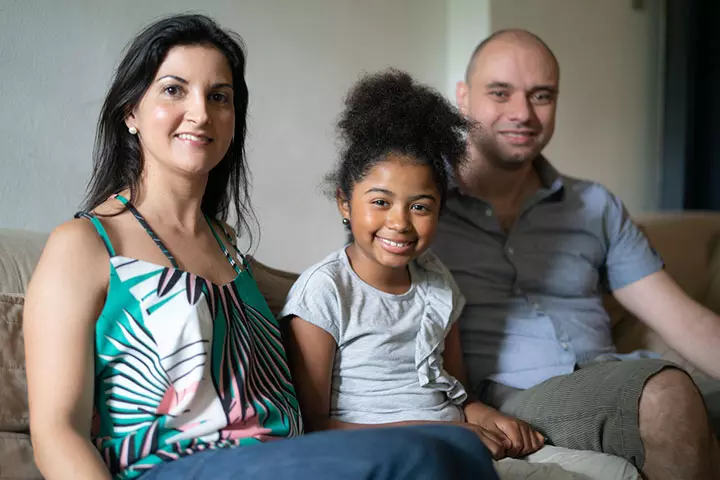
- If your adopted child is from a different cultural background to your own, there can be some challenges for the child and your family in terms of discrimination and prejudice arising from misconceptions.
- This is often seen in cases of international adoptions. Your birth children may find difficulties in adjusting to your adopted child’s ethnic background and vice versa that may lead to disagreements. The adopted child may experience identity loss as he grows up.
The process of adoption comes with several societal or cultural challenges. In this context, Rachael Joslow, a blogger and an adopted child, shares her experiences of facing racial and ethnic challenges. Although she says that she has received unconditional love from her European single mother, being Vietnamese, she faced criticism, and writes, “My mom and I have received many weird and uncomfortable comments, but one that I often remember is, ‘you know she’s going to be raised by strangers, right?’ This was not said in front of me; it was actually told to my mom before she signed the papers to bring me home. The comments don’t end at my mom; they came to me too. I received a few judgemental statements during high school, and a common one was how I was white-washed and not really Asian (i).”
 Do remember
Do remember7. Ethical challenges
Adoption can also lead to ethical complications or setbacks.
- The adoption agency may have violated the rights of the birth parents.
- The adoption agency may decide to hide some crucial background or health issue from the adoptive parents.
- In international adoption, the child may have been a victim of trafficking.
- The adoptive parents may choose to hide information about the birth parents from the child. It helps to understand more about the adoption challenges that the adoptive parents may have to face.
8. Disrupted adoptions
Adoption can be a tricky journey, and sometimes unexpected problems can come up that can force you to terminate the adoption process.
- Disruptions can occur for various reasons, such as adoptive parents feeling overwhelmed by the child’s extreme behaviors. In some cases, a judge may intervene and forcibly terminate the adoption if there’s evidence of abuse or neglect.
- While disrupted adoptions are not common, potential adoptive parents should be know of their existence. Taking proactive steps to understand and address potential challenges can contribute to a more stable adoption journey, reducing the likelihood of disruption and ensuring a secure home for the adopted child (5).

Adoption is difficult, and it is different for everyone. No two families will share the same experience of adoption, so there is no true way of knowing what a family has gone through because of the adoption process. To make the process more stable and secure for the child, it’s important for adoptive parents to be prepared, and if something does go awry, realize that sometimes things are not meant to be.
Frequently Asked Questions
1. Do all adoptees have issues?
Though not all adopted children face issues growing up, many do. They may experience situations and emotions that only adopted children would understand. Depending on their pre-adoption circumstances, adopted children may also have a greater risk of experiencing depression, anxieties, and attachment issues leading to insecurities and uncertainties (6)
2. Why do some adoptions fail?
Around 11% of adoptions don’t work out (7). One of the most common reasons adoptions fail is because the children have trouble attaching to their adoptive parents. They may feel overwhelmed by displays of affection or may have trouble coping with the many changes in their new environment.
3. How does adoption affect the birth mother?
Giving her child up for adoption might stir guilt and grief in the birth mother. She may struggle with forming relationships post the adoption and may require time and medical support to get back on her feet after the trauma.
4. What support resources are available for adoptive families?
Adoptive families can access counseling services, join support groups, and participate in online forums. These resources offer emotional support and guidance.
Adopting a child is a lengthy and challenging process. After you’ve decided to adopt a child, you may face many adoption problems at practically every turn. These hurdles can be financial, legal, intercountry adoption, health-related, or emotional challenges from friends and family, as well as societal and cultural challenges. There may be some ethical issues with adoption in particular situations. Therefore, it’s critical to understand the potential issues with the adoption process in your nation for proper awareness of the proceedings and the situations that may arise after. This can help you and your family to be better prepared to deal with it.
Infographic: Legal Hurdles When Adopting A Child
Legal issues may arise in the adoption process and concern with the rights of biological parents or extended family members. Several factors may complicate the matter and even lead to rehoming of the child away from the adoptive family. The infographic below tells you about the obstacles that may hinder the smooth progress of adoption. Illustration: Momjunction Design Team
Illustration: Common Problems & Challenges Of Adoption
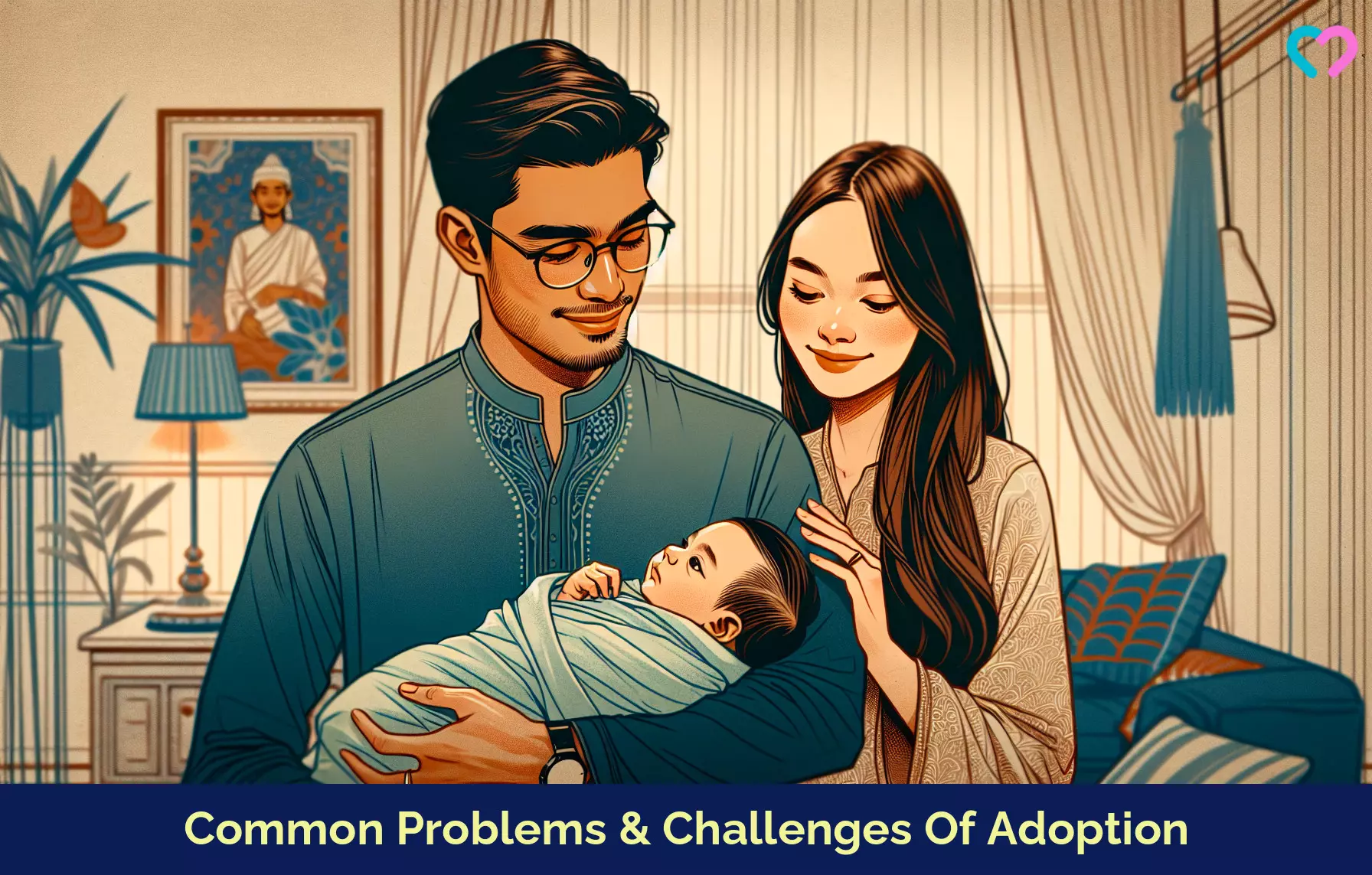
Image: Dalle E/MomJunction Design Team
Although adopting a child can be wonderful, it can also present its own challenges. Find more about the major challenges that your adopted child can have.
Personal Experience: Source
MomJunction articles include first-hand experiences to provide you with better insights through real-life narratives. Here are the sources of personal accounts referenced in this article.
i. My Personal Experience With Being Adopted.https://womenscenteratumbc.wordpress.com/2021/11/29/my-personal-experience-with-being-adopted/
References
- Intercountry Adoption.
https://travel.state.gov/content/travel/en/Intercountry-Adoption.html - Understanding the Hague Convention.
https://travel.state.gov/content/travel/en/Intercountry-Adoption/Adoption-Process/understanding-the-hague-convention.html - International adoption: Health issues for families; (2005).
https://www.ncbi.nlm.nih.gov/pmc/articles/PMC2722550/#!po=91.6667 - Intercountry (International) Adoption Health Guidance.
https://www.cdc.gov/immigrant-refugee-health/international-adoption/?CDC_AAref_Val=https://www.cdc.gov/immigrantrefugeehealth/adoption/ - What Are Some Common Problems of Adoption?
https://adoption.org/what-are-some-common-problems-of-adoption - Will My Adopted Child Have All Sorts of Emotional Problems?
https://creatingafamily.org/adoption-category/mental-health-issues-with-adopted-children/ - Why Do Some Adoptions Fail?
https://practicenotes.org/vol1_no4/why_do_adoptions_fail.htm - Closed Adoption Disadvantages.
https://americanpregnancy.org/child-adoption/closed-adoption-disadvantages/ - Behavioral and Emotional Issues in Adopted Children.
https://www.chop.edu/conditions-diseases/behavioral-and-emotional-issues-adopted-and-foster-children
Community Experiences
Join the conversation and become a part of our nurturing community! Share your stories, experiences, and insights to connect with fellow parents.
Read full bio of Andrea Riley
Read full bio of Debolina Raja
Read full bio of Rebecca Malachi
Read full bio of Vidya Tadapatri








